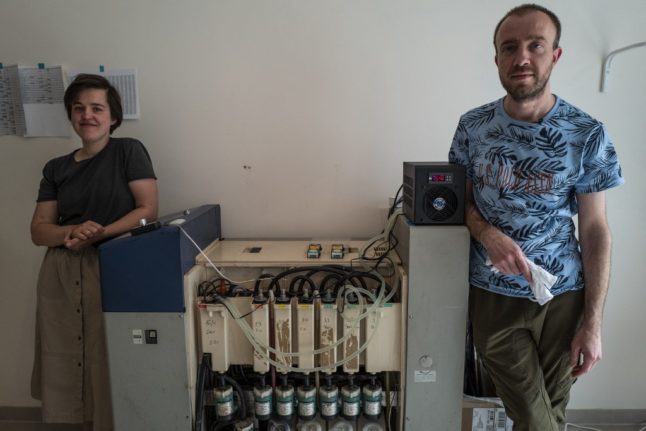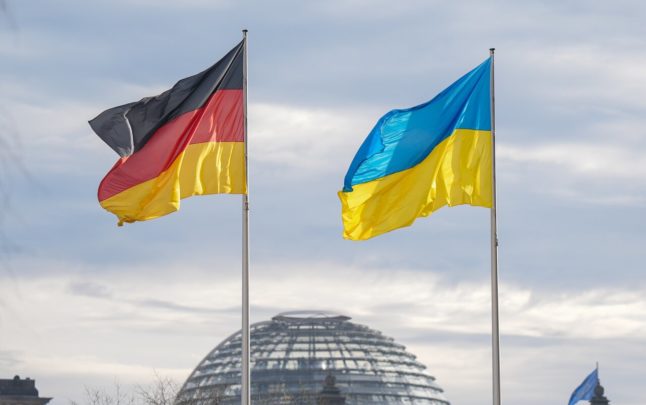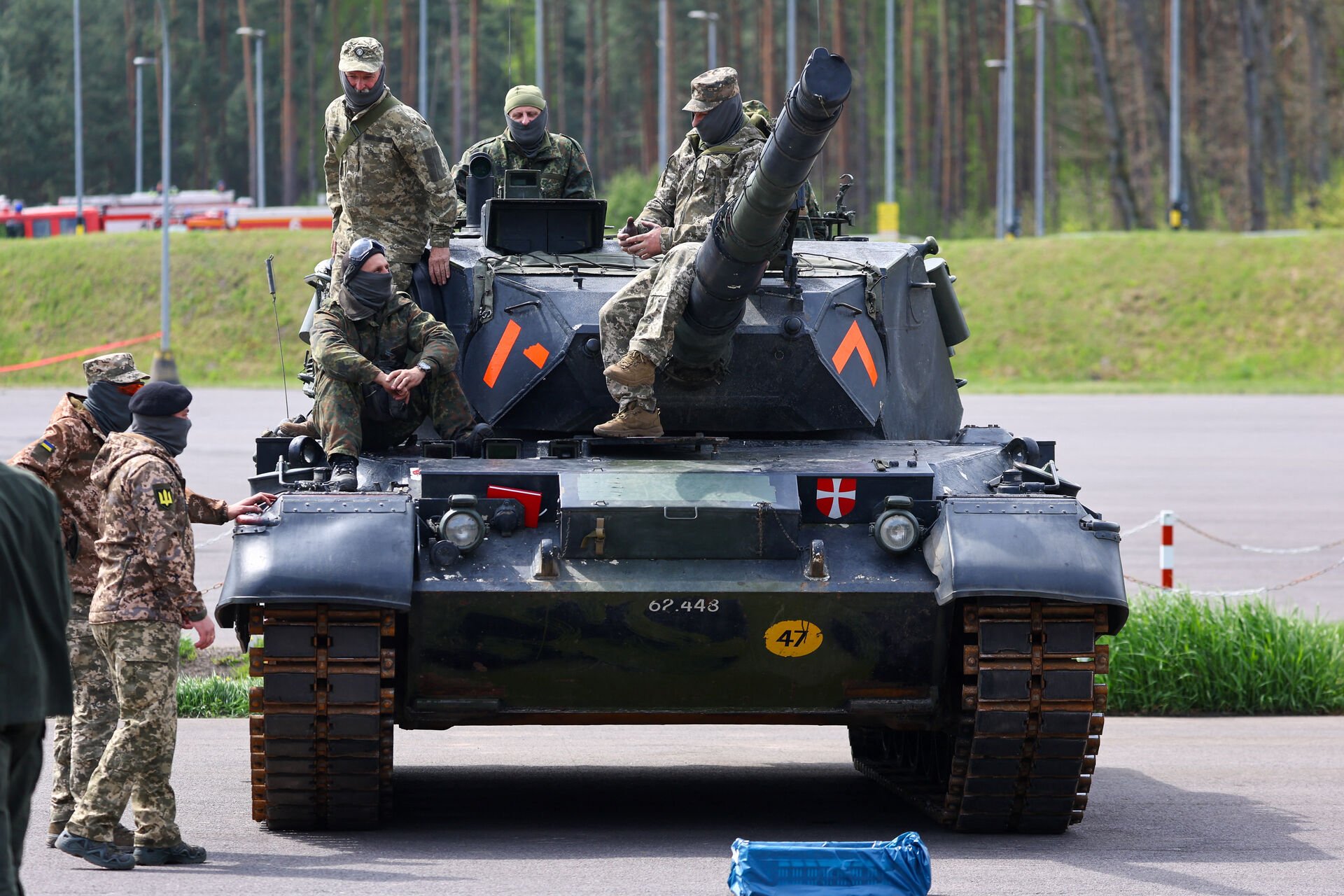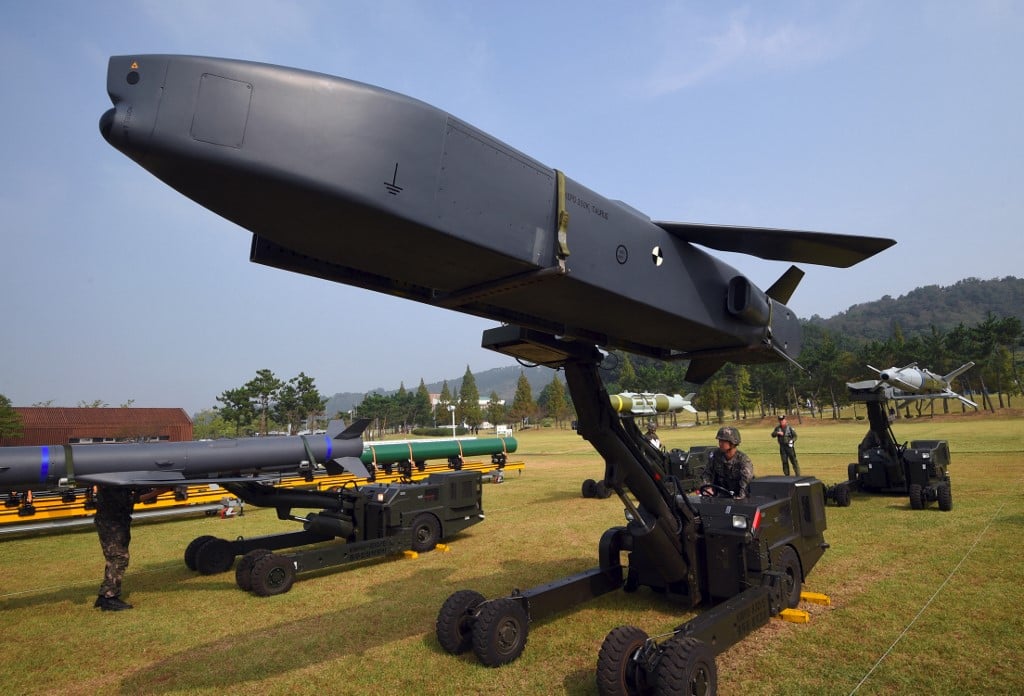Fast forward a turbulent year and a half later and she and her husband Dima have settled in Berlin, their eldest daughter has become fluent in German and they are serving a growing niche of analogue photography buffs in Europe’s top economy.
They say that at 24 hours, their Film Speed Lab (FSL) provides perhaps the quickest turnaround service in the country for hobbyists and professionals who have returned to traditional rolls of film.
Joining the burgeoning ranks of entrepreneurs among the more than one million Ukrainian refugees who have arrived in Germany since the war began, the couple said the shop had also allowed them to “build a community” in their new home.
“Film’s not dead — demand is rising,” Hridina-But, 38, said, noting the irony that social media is driving interest in analogue photography.
Ukrainians “have the same interests as people in the US or Germany so they all watch TikTok and shoot (with) film”, she said.
Hridina-But, who gave birth to her third daughter in the western city of Chernivtsi while fleeing Ukraine, calls herself the business brains behind the operation.
Dima But, who as a father of three was exempt from compulsory military service in Ukraine and allowed to leave the country, brings the passion for photography.
But, 40, said he loves the “crazy emotion” of film because, instead of providing the instant gratification of digital, it requires some patience to reveal its beauty and power.
He likes the parks and playgrounds of their family-friendly district of Prenzlauer Berg, the sunny, modern space he has to work in — half lab, half sitting room — and the shop’s “good neighbours”.
“It’s people interested in what we do,” But said. “It’s very good people, it’s good vibes.”
German ‘peculiarity’
While the couple was able to rely on savings to start their business, they still had to grapple with the notorious red tape required to launch any German venture and get their children enrolled in school and daycare.
“At first of course you’re saying, ‘Oh my God, I need to fill in this form and that form and send it to this place and that place’,” Hridina-But said.
“It’s just the peculiarity of the country — you have to go through it and then everything works.”
They were nevertheless able to launch at remarkable speed last October, impressing even their German friends.
“Usually it takes a lot more time but we just didn’t have a lot of time,” she said.
They’re not quite in the black yet but FSL’s business has steadily grown, selling and developing colour as well as black-and-white film and processing ECN-2 motion pictures. They’re now a team of five, mainly Ukrainians.
Ukrainian refugees are as a rule exempt from Germany’s complex system to apply for asylum, allowing them to join the labour market immediately.
Around 36,000 Ukrainians had found steady employment by January, according to German government data, with another 1,000 people self-employed.
FSL attracts customers from across Germany and even a few refugees who used to frequent the family’s Kyiv shop Fotovramci, like 22-year-old Yana Isaienko.
‘Collect everything’
This year on February 24, the anniversary of the 2022 invasion, the shop put on an exhibition of its clients’ photography featuring dozens of pictures by Ukrainians aching for home.
Isaienko, who now works at FSL and runs its prolific TikTok feed, said the powerful images help keep the war front-and-centre in their German customers’ minds.
She held up a favourite picture from Kyiv of an improvised anti-tank obstacle known as a “Czech hedgehog”, with a single flower threaded into its metal.
Another showed a rosy-cheeked grandmother in her kitchen making the beloved dessert vareniki with cherries.
In the wake of the invasion, “you start thinking about your family and about your history in another way — you want to collect everything”, said Isaienko.
Ukrainian freelance photographer Stan Gomov, 27, dropping off some vacation snapshots, said that being at FSL felt like home.
“It’s just the time to support each other generally because of the whole situation with the Russian war,” he said.
“It’s just very nice when you can come somewhere and have the same service that you used back home.”





 Please whitelist us to continue reading.
Please whitelist us to continue reading.
Member comments